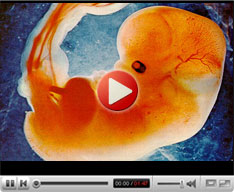
Know Infertitlity
Infertility treatments
Diagnosing InfertilityMale:
Obstetrics and Gynaecology
Infertility Treatment Services
Andrology |
Pre-implantation genetic diagnosis (PGD)Pre-implantation genetic diagnosis (PGD) is a technique that involves checking the genes of embryos created through IVF for any kind of serious genetic defects. This method allows people with a specific inherited condition in their family to avoid passing it on to their children. In most cases, the female, male, or both partners have been genetically screened and identified to be carriers of potential genetic conditions. Ideal Candidates for PGDGenetic testing of embryos is recommended for:
PGD ProcedureNormal IVF treatment is carried out which involves collecting and fertilizing the eggs. The resulting embryo is grown in the laboratory for a couple of days to allow for the division of cells until there are about 8 cells (also called as blastomeres). A well trained embryologist then removes one or two blastomeres from the embryo which are tested to check if they contain the gene that causes the genetic condition in the family. Embryos which do not contain the defective gene are transferred to the womb to allow them to develop while those affected by the genetic condition are allowed to perish. Any suitable remaining unaffected embryos can be frozen for later use upon request. Two weeks after the embryo transfer, the patient is advised to undergo a pregnancy blood test. Advantages of PGDThe advantages of PGD include:
Disadvantages of PGDDisadvantages associated with PGD include:
|
Our TeamNews & EventsClinic LocationVideo Gallery |















